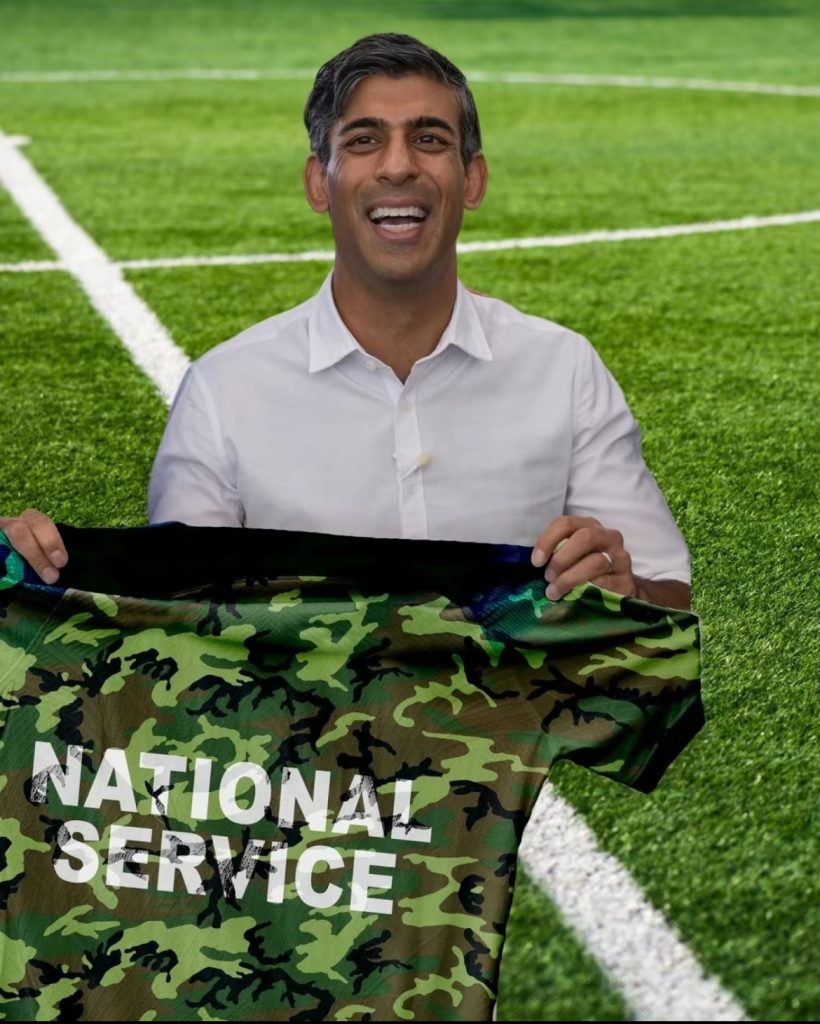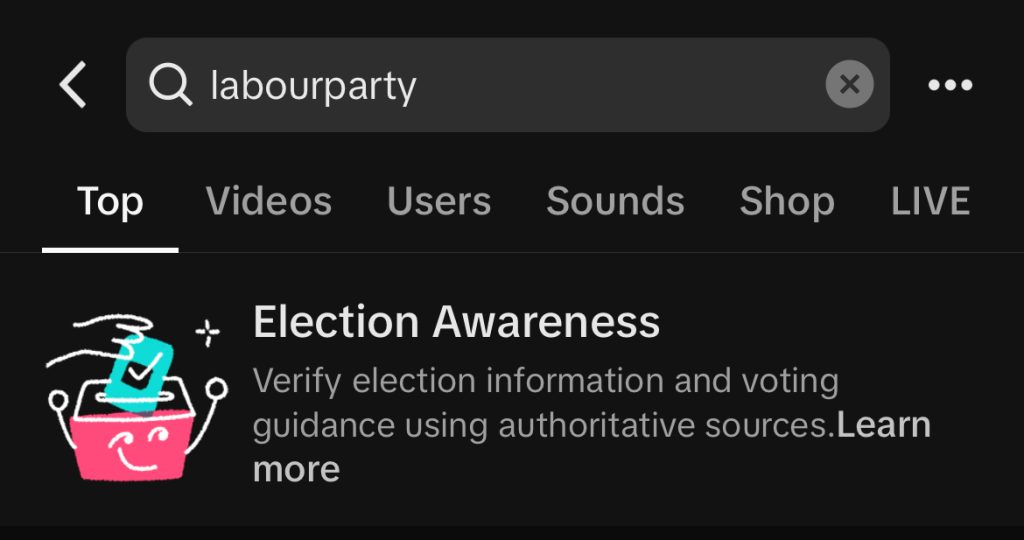From Likes to Votes: How Memes are Shaping the First ‘TikTok General Election
With the 2024 General Election fast approaching, political parties are ramping up their digital campaigns to engage with voters on social media. Platforms like TikTok have become crucial battlegrounds for political discourse despite their origins as entertainment apps. Hermionie Arakliti looks at political engagement on TikTok, the rules governing political content, and the strategies employed by the major parties.

The rivalry between the Labour and Conservative parties is intensifying on TikTok. Labour has taken a swipe at Rishi Sunak, with posts implying he would show up on your 18th birthday after Sunak announced Conservative plans to bring back National Service. Although this post was removed, it exemplifies the direct approach taken by Labour on social media. On the other hand, the Conservatives, with Rishi Sunak frequently answering comments, are using personal engagement to connect with the electorate.
Labour has hired a dedicated employee to recruit influencers and enhance their social media presence, recognising the critical role of digital advertising in reaching voters. They offer tools like Labour Connects for creating localised infographics. Not only are they smashing engagement, but they know how to target Gen Z, the youngest generation of voters, through satire and ‘low quality’ memes that have historically resonated with this demographic.
The Conservatives encourage supporters to share their content through the Share2Win app, aiming to amplify their message and reward engagement. Their approach is slightly different from Labour’s, focusing on audience engagement and community cultivation by replying in depth to comments and personalising responses by addressing commenters by their name.

Of course, we must give Nigel Farage a special mention: with 600,000 followers he consistently promoted Reform UK before announcing he would be running as party leader despite stating multiple times he wouldn’t be doing so, illustrating the reach and impact individual influencers can have on TikTok. We wouldn’t be able to mention Mr Farage without a nod to drink-gate, and how he was not McLovin’ it.
TikTok has launched its 2024 UK General Election Centre to provide voters with essential election information. Given that over 80% of the electorate are active social media users, this initiative aims to facilitate informed voting. It includes details on when the election will be, who can vote, how to register, voter identification, and tips for spotting misinformation – highlighting the importance of accessible, accurate information in maintaining a healthy democracy.

Take a look at several new regulations that have been introduced to ensure transparency and fairness in digital campaigning:
1. No Political Advertising or Fundraising: TikTok prohibits political parties and candidates from advertising, fundraising, or monetising content on their platform.
2. Digital Imprints: New UK laws require all political content to include a ‘digital imprint’ that discloses the promoter and publisher of the material.
3. Electoral Conduct: Organisations campaigning in the election, even if not candidates, must adhere to specific rules on electoral conduct.
The presence of political content on TikTok, traditionally known for dance and entertainment videos, raises questions about the platform’s role surrounding political conversations . While some argue that political content dilutes the app’s original purpose, others see it as an evolution of the platform into a space for meaningful engagement and important information.
As someone who has been using TikTok since its early days, I initially found the increase of political content a bit annoying. But over time, I began to appreciate the platform’s versatility and how it makes politics accessible and breaks it down in a way school never really did.
Social media and memes are expected to play a significant role in the upcoming election. Memes can simplify complex political messages, making them more digestible and shareable for people who otherwise may not have access to or understand such content. Both parties are likely to use humour, satire, and relatable content to appeal to younger voters and create viral moments that can sway public opinion.
As the election approaches, TikTok and other social media platforms will be pivotal in shaping political narratives. With strict rules to ensure transparency and fairness, the digital campaign landscape is set to be dynamic and closely monitored. Voters should stay informed, critically evaluate the content they encounter, and participate actively in the democratic process.
HA
Hermionie Arakliti is a second-year Communications & PR student at the University of Lincoln who has been spending a week at Shooting Star on work experience.










